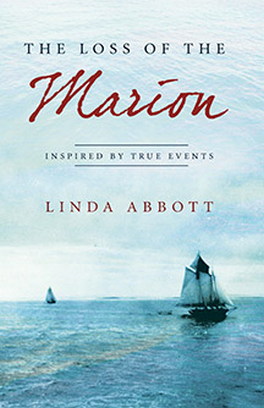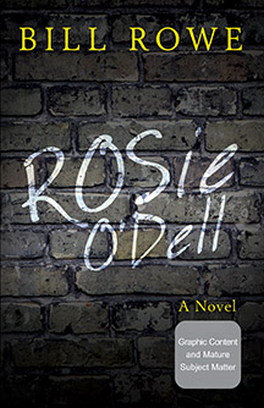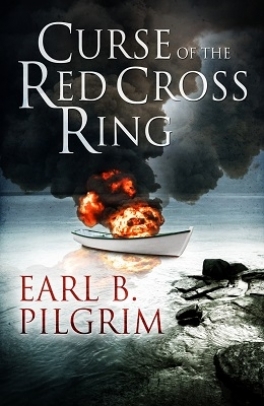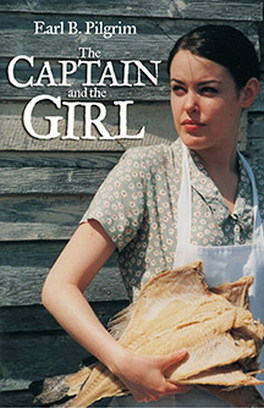Lion Hunter is a historical novel that opens in Europe in 1941, during World War II, with the introduction of a German secret agent, Hans Farber, following a successful mission in Leningrad, Russia. His superior and head of the Abwehr, Admiral Canaris, charges Hans with a nigh-impossible task: assassinate the prime minister of Britain, Sir Winston Churchill, at the rendezvous point between that political leader and the president of the United States, Franklin D. Roosevelt. The intended outcome of Hans’ mission would be the demoralization of Britain, making it ripe for invasion by the Nazis. The two world leaders were scheduled to meet aboard ship in the waters off Ship Harbour, Newfoundland, to negotiate the Americans’ involvement in the war effort against Adolf Hitler. From Berlin, Germany, the story follows Hans Farber’s journey under cover to England and then on to St. John’s, Newfoundland. Obstacles threaten to compromise his mission at every turn, from Heinrich Himmler and his Schutzstaffel (SS) attempting to sabotage the Abwehr’s operations, and corrupt operatives impeding Hans’ progress for personal gain, to a pair of British secret agents from MI6 hot on his trail while crossing the Atlantic—all leading to a dramatic showdown between the German spy and his pursuers high up on the cliffs of Ship Harbour, Newfoundland, on that historic day when the prime minister of Britain and the president of the United States came together to discuss the fate of both their nations.
His orders called for him to meet his contact in a café in the centre of Hyde Park at noon. Grabbing a quick breakfast downstairs, Hans left the hotel and trotted across the street, walking on the outskirts of the park until he came to Marble Arch. He picked up a paper from a stand near Speaker’s Corner and proceeded onto the grounds. He soon reached the Serpentine River. Its jade colour matched its surroundings. He still had an hour before the rendezvous, but his suspicions were raised.
Spotting the location off in the distance, Hans went in the opposite direction, crossing the river at the nearest bridge. He walked down the side opposite the meeting, until he was across from it. He sat down on a bench, unfolded his paper, and began his wait.
He knew the person he had to meet would have a blue flower in the lapel of his jacket and would be carrying a walking stick. He glanced around: everything seemed all right. All the people you would expect to see in a park—nannies with children, people walking hand in hand—were present. At about five to twelve, Hans spotted a man coming from the opposite direction from which he had arrived. Soon he could make out the flower and the walking stick. Arriving at the meeting location, the man sat and rested his stick against the table. He was in his forties with a handlebar moustache. He ordered a drink and settled in to wait for his counterpart.
Hans knew the man would wait for a half-hour. If he did not meet him, he would leave and return tomorrow. Twenty minutes later, the man was growing impatient: he kept looking around and staring at his watch. Hans got up and walked across the bridge. When he arrived at the table where his contact was sitting, Hans asked the man if he had a map of London. The man said he had one of Scotland. With the proper exchange out of the way, Hans sat across from the spy and ordered a tea.
“What kept you?” the man whispered in German.
“Fool!” Hans hissed between his teeth. “What kind of agent are you, speaking German around here?”
“I’m sorry,” the man said in English. “You kept me waiting so long I was becoming worried you had been discovered.”
“I was being sure who was who in this game,” said Hans in a perfect British accent. “Now what have you got for me?”
The contact pulled a newspaper from his jacket. He and Hans exchanged papers.
“You will be catching a ship out of Southampton in two days. It is going to Boston with stops in Halifax and St. John’s. Your cover is that of a fish broker. You are in Newfoundland to see about drumming up new business there. A dummy company will be set up in Brighton, with a person there to answer any inquires. An account has been set up in your name at the Bank of England, where you can withdraw the necessary funds required. Have you any questions?”
Hans digested the information he had received. Opening the newspaper in his lap, he saw his ticket for the ship and a bank book, and business cards with the company’s name on them, Brighton Fish Brokers, embossed in gold letters. His new name was Chris Parker. Along with this were a few books on the business of being a fish broker.
“Okay,” said Hans. “That appears to cover it.”
“Good. It has been a pleasure doing business with you,” said the contact, standing up and preparing to leave.
“One question,” said Hans. “Is there any personal message from Admiral Canaris?”
“Nothing important. He said if things are not working out, you should return home as soon as possible,” the man said over his shoulder as he walked away.
Hans froze when he heard that. He wanted to go after the bastard. It was not possible that he was Abwehr. The last thing that Canaris had said to him was that if the mission went wrong, he shouldn’t return to Germany. The admiral had said Himmler had agents watching the Abwehr agents. Thinking about it, Hans realized that Himmler would love nothing better than to see this mission fail. Hans had no doubt he knew about it. No wonder the supposed Abwehr agent he had just spoken to was so careless with protocol. Himmler knew if the mission failed, Canaris failed also.
Hans watched his contact walking down the trail. He wondered if he should give chase and beat the information out of him. If he grabbed him, it would let them know he was on to them. Looking at his boat ticket, he knew this was the only way to Newfoundland for him; he couldn’t blow his cover. He had to go along with the game, hoping he could complete the mission. What had happened to his real contact? he wondered. There was a good possibility that he or she was at the bottom of the river he was sitting beside. That’s what I would do. Germans killing Germans, what would the British think of that? He got up from the table and headed back to his hotel.
No use informing Canaris. It was apparent a mole was somewhere high up in the Abwehr. Talking to Canaris could blow the whole thing wide open. He would continue as if everything were normal. Now it wasn’t just the British he had to worry about; he had the SS to look out for also.
Hans left the park and walked toward Oxford Street to pick up luggage to look the part of a businessman. Finding what he needed, he continued on the road until he found a place to purchase a business suit.
His work in Europe was now complete. He had finished the first stage of the mission. When he was almost back to the hotel, he stopped and turned around. He was tempted to play the tourist for a while. He had always wanted to see Buckingham Palace. He might never have another chance. Looking at his watch, he realized he still had a boat to catch and that sightseeing would have to wait for another time.
The real feeling and passionate interest of the book make it well worth reading.-- PEI Guardian --
The sub-plots move parallel to each other, intersecting at points, and weaving toward a climax that may take your breath away.-- Northeast Avalon Times --
The author’s knowledge of the geography and military operations adds depth to the story. Details and imagery of both Europe and Newfoundland are brought to life in the story.-- Atlantic Provinces Library Association Bulletin --























